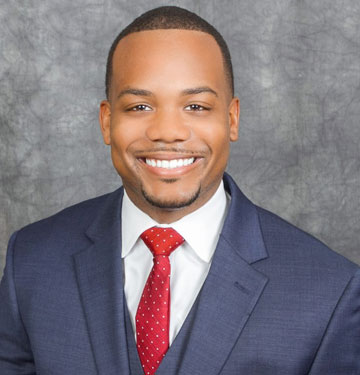In the past month, the Orleans Parish School Board President Ethan Ashley announced the Board would reconsider its ban on renaming schools in response to the push to remove racist historical figures from public places of prominence. This, as the State’s guidelines for reopening were issued and the Board released it’s own District plan. With so much happening, PSA decided to sit down with President Ethan Ashley to discuss what lies ahead for NOLAPS and what he sees as the greatest challenges and opportunities facing the District.

PSA: There’s so much to discuss about schools, equity and what’s next. But first, we want to understand what informs your perspective. Your work with the Anti-Defamation League, BAEO, Juvenile Justice Project, and Urban League centered around criminal justice reform. How does all that inform your approach?
Ethan: If we want kids to be treated as kids, then we need to work to make sure their needs are met rather than be criminalized for circumstances that they have no control over.
Our system punishes the behavior of a student or a young person who didn’t ask to be born impoverished, rather than recognize the struggle of poverty as the cause of action and solve for these needs gaps. That’s where I’m coming from and that’s what I want to fix.
I personally experienced this fight growing up in a single parent household. As a second grade student, I was caught stealing food. I wanted something that my mother couldn’t afford at the time. Do not get me wrong, my mother worked hard to provide for me and my brothers, but sometimes she didn’t have it to give. In responding to my behavior, my mother brought me to the local police precinct hoping that the experience would scare me straight. All because we lacked food security.
My life’s work has really been focused on fighting for the civil rights of and empowering those from low-income working class families. I worked in criminal justice reform and successfully fought to eliminate juvenile life sentences in Louisiana. My work exposed me to the inequities of our system, and combined with my own life experience, has fueled my passion to fight the very, very real school to prison pipeline.
PSA: How do you think schools should balance the realities of COVID-19 with making the kind of comprehensive reforms that communities are aching for?
Ethan: I think there’s great opportunity for experienced based learning about our current circumstances in the United States today relative to COVID-19 and police brutality in the face of the fight for racial equality. I also think we should advocate to change the curriculum framework developed by the state.
But we can start by working on something as fundamental as school disciplinary policies. De-escalation and restorative justice have a place in schools just like they do in demilitarizing the police force. Some schools have already embraced these practices. We need more to do so.
Now, that won’t necessarily get us to the larger conversations around relearning our history and highlighting rather than glossing over the systematic ills, but it’s definitely a start and I believe it’ll be a good start.
PSA: You recently announced the board would be taking up consideration of renaming Lusher and McDonogh at its next meeting July 30. What role should education play in dismantling racial bias and what are some of the real achievable results that you think we reach in the system that you oversee?
Ethan: We need to educate our young people about systemic racism and you can’t do that in a building named after a segregationist. It’s that simple.
It’s important for education to tell the truth about how our systems are predisposed towards biases and oppression for a particular group of individuals, particularly minorities. Black people were considered three-fifths a person. Many of those who were native to this land were slaughtered.
We were afterthoughts. This system was made originally to exclude and dehumanize us.
That’s the truth.
We cannot and will not progress as a country or community until we truly come to terms with good, bad and ugly of our country’s history.
